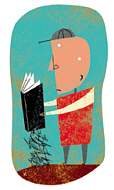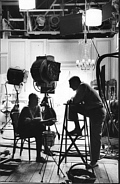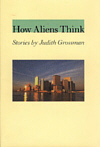
|
Illustration by
James
Yang
|
|
Drowning our kids in bad writing?
Francine Prose admits that many years ago during a family
vacation she bribed her sons to read, paying $5 per story. She
needn't do that anymore. Her offspring, now 21 and 17 years of
age, read avidly--but she says it's no thanks to the books
they've been taught in school.
Prose, a novelist, journalist, essayist, and former faculty
member in the Hopkins Writing Seminars,
returned to campus to
discuss her recent provocative essay "Why the Caged Bird Cannot
Read," published in Harper's last September. For that
article,
which she characterizes as "a polemic," Prose examined
approximately 80 required reading lists from American high
schools and found what she regards as one bad book after another-
-Maya Angelou's I Know Why the Caged Bird Sings, James T.
Farrell's Studs Lonigan, William Golding's Lord of the
Flies, Harper Lee's To Kill a Mockingbird.
As literature, she says, these books tend to be sentimental,
simplistic, and full of fundamentally bad writing. "Rather than
exposing students to works of literature that expand their
capabilities and vocabularies, sharpen their comprehension, and
deepen the level at which they think and feel, we either offer
them 'easy' books that 'anyone' can understand, or we serve up
the tougher works predigested."
Furthermore, Prose said, books are taught not as literature, but
as lessons in values or civic responsibility, or used as
opportunities to engage in pop psychology. Case in point: a
popular sourcebook for high-school English teachers that advises
teaching Steinbeck's Of Mice and Men "to show how progress
has been made in the treatment of the mentally disadvantaged."
"You can't teach Huck Finn and avoid talking about
racism," Prose said, "but there are a lot of other things to be
said about that book as literature. Twain could really use the
language."
Some have taken Prose's essay to be an attack on
multiculturalism. That, she said, was not her intent. Her point
about Angelou's book, for example, is not that it's
African-American literature, but that it's poorly written, in her
view chockablock with mixed metaphors, bad similes, and turgid
prose. Why waste time on I Know Why the Caged Bird Sings,
she asks, when you could have students read the work of James
Baldwin, an African American who produced genuine literature?
"I can't tell you the trouble I've gotten into since this piece
came out," Prose said. "But it's trouble I'm glad for."
--DK
RETURN TO
FEBRUARY 2000 TABLE OF CONTENTS.
|








